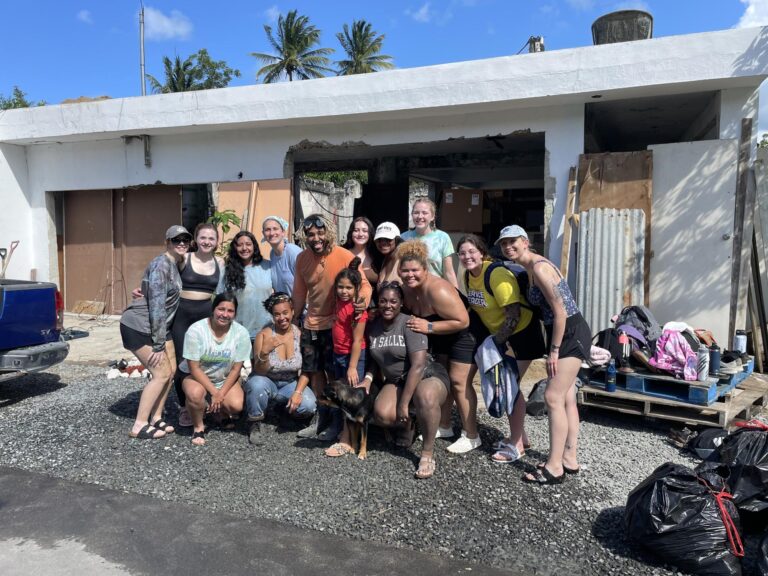The alternative spring break program allows students to use their free time to help change a community.
Alternative Spring Break is an educational program in which groups of students, led by student leaders and faculty, travel to regional, national, and international locations during their spring break.
The program began in 2006 when a large group of students traveled to Biloxi, Mississippi, to assist in relief efforts in response to Hurricane Katrina.
Since students and faculty participated in these spring break field trips, the organization has evolved into fall and winter break experiences.
Groups have traveled to Youngstown, Ohio, New York, Puerto Rico, and many other places.
The trips focus on a challenge facing the community they are visiting. This allows students to participate in direct service, cultural exploration, and change-making knowledge.
Craig Berger, associate director of Community Engaged Learning, says faculty and students also spend some of their time exploring local cultural landmarks that help understand what it means to be part of that community.
Students can explore different dimensions of how a group may respond to a problem in their community and witness what is done in response.
A hidden treasure in these experiences lies in the relationships between the students who participate in the trips.
Anthony Giancola, junior applied engineering major, participated in the trip to Kermit, West Virginia in spring 2023.
“I didn’t really know anyone who had gone into it and I made friends for life.” he said. “Every student should experience the world and see what it has to offer, and this is a great way to do that.”
The group remained at Big Laurel Learning Center. While there, the group discovered sustainability and unnecessary consumption. The group also worked with local summer camp children through games, tips and hands-on activities to teach them about sustainability.
Chris Lukas, assistant outdoor adventure director for Recreation and Wellness Services, also joined the trip to Kermit, West Virginia, in spring 2023.
Lukas was a college trip leader and saw first-hand how travel affects students.
“Volunteering is a very constructive use of your time because you gain so much experience and knowledge,” he said. “I have seen students step out of their comfort zone and emerge as a new person. »
A National Library of Medicine study found that persistent academic progress is more common among those who participated in volunteer work.
“Many lessons are learned on these trips, and students can take those lessons and apply them at Kent. » said Lucas.
Berger says these trips are an immersive experience.
“Unlike any single program we do on campus,” he said. “These trips allow us to minimize the distractions of our daily lives in Kent, as we travel to a different community and have new experiences.”
In the past, more than 100 students have participated each year. After the pandemic, the number of participating students declined. Last year, about 60 people participated in an Alternative Spring Break trip.
Three trips are planned for the upcoming spring break.
The first trip, a one-day experience titled “Strengthening Ohio’s Urban Communities,” will take place in Youngstown, Ohio, on March 26.
The second trip, “The Environment, Fossil Fuels, and Appalachian Communities,” will take place in Kermit, West Virginia, March 25-29.
The third trip will focus on Black maternal health and infant mortality in Washington, DC, March 24-29.
Registration for these trips opens on November 28. Students can view travel information and claim their spot on the travel list through Alternative Spring Break. website.
Information sessions will also be held for students with questions at the start of the spring semester. Information about these sessions will be posted on the Community Engaged Learning website. Instagram.
The mission behind these trips is to allow students to develop new relationships, help a community in need, identify career opportunities, and create valuable networking opportunities.
“Honestly, I don’t think students know exactly what they’re going to experience until they get to the other side, and then I just think they’re kind of blown away.” said Berger.
Chloé Harich is a journalist. Contact her at (email protected).
